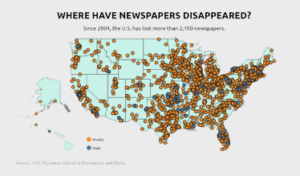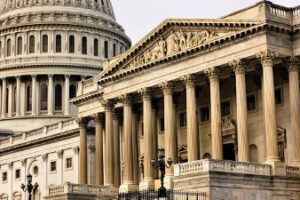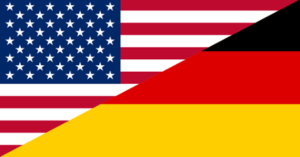In 2021, President Biden offered a safe haven to Hong Kong residents in the U.S., which allowed them to prolong their stay for up to 18 months. This year, Biden extended that offer for an additional two years, calling Hong Kong’s policies a “significant erosion of human rights and fundamental freedoms.” To understand these policies better, here’s a brief look into Hong Kong’s recent history.
Tag Archives: Democracy
News Deserts and the Challenge to Democracy
What do Glennville, Georgia, and Youngstown, Ohio, have in common? The small town in the Deep South and the mid-sized Midwestern city both have lost their sole local newspapers in recent years.

11 Years of “Maple Leaf & Stars and Stripes” at Leuphana University Lüneburg

We are pleased to announce that Darion Akins, the current U.S. Consul General from Hamburg, will open our lecture series with a talk on “Worth the Struggle: Why Democracy Matters” at 6:15 p.m. in the forum of Leuphana University Lüneburg’s central building (C40) on November 18, 2021. The coronavirus 3G rule (vaccinated, recovered, tested) applies to this event.
In addition to the lecture on campus, Julia Nitz (Universität Halle-Wittenberg), Christoph Strobel (University of Massachusetts, Lowell), and Fiona Tolan (Liverpool John Moores University) will also join us this semester via Zoom. As always, each lecture lasts roughly 1 hour and is either interactive or followed by a lively question-and-answer session. Please see the poster for further details.
Hope to see you at one or more of the talks.
Sabrina Völz, Maryann Henck, and Maria Moss
A Government of, by, and for the people?

We Americans harbor a huge dichotomy in our attitudes toward our country. We display our patriotism in borderline chauvinistic manner, playing the national anthem before every major sporting event, and church services frequently include impassioned praise of our nation and sometimes promote the idea that loyalty to god must include equal loyalty to the country.
We Americans, myself included, love our country. It’s surprising that many of my fellow citizens hate our government. It’s a pejorative to call someone a politician. Candidates for office who have no government experience proudly run as ‘outsiders’ and often easily win a seat. Americans do not recognize popular public programs as government created and sponsored by Washington. I’ve heard more than once the demand, “Keep government out of my Medicare,” which is, of course, a government program. President Ronald Reagan was cheered when he told us, “Government is not the solution to our problem, government is the problem.” Americans perceive correctly that the government does not represent all the people.
In a trying political climate, look not towards what divides, but what unites Germany and the U.S.: Journalistic Excellence
Are German-American relations in a critical state? If public opinion surveys are anything to go by, perhaps so – at least according to Germans. While Americans generally still hold on to a positive image of Germany, the same cannot be said for the way most Germans view the United States. A jointly conducted poll by the Pew Research Center and the Körber-Stiftung revealed late last year that while “three-quarters of Americans see relations with Germany as good,” nearly “two-thirds of Germans (64%) see relations as bad.” More alarmingly, the New York Magazine quotes a survey conducted by YouGov revealing that Germans view President Trump as “a greater threat to world peace than any other head of state” – a noteworthy distinction, especially in light of the existence of other controversial leaders, such as the likes of Kim Jong Un and Vladimir Putin.







